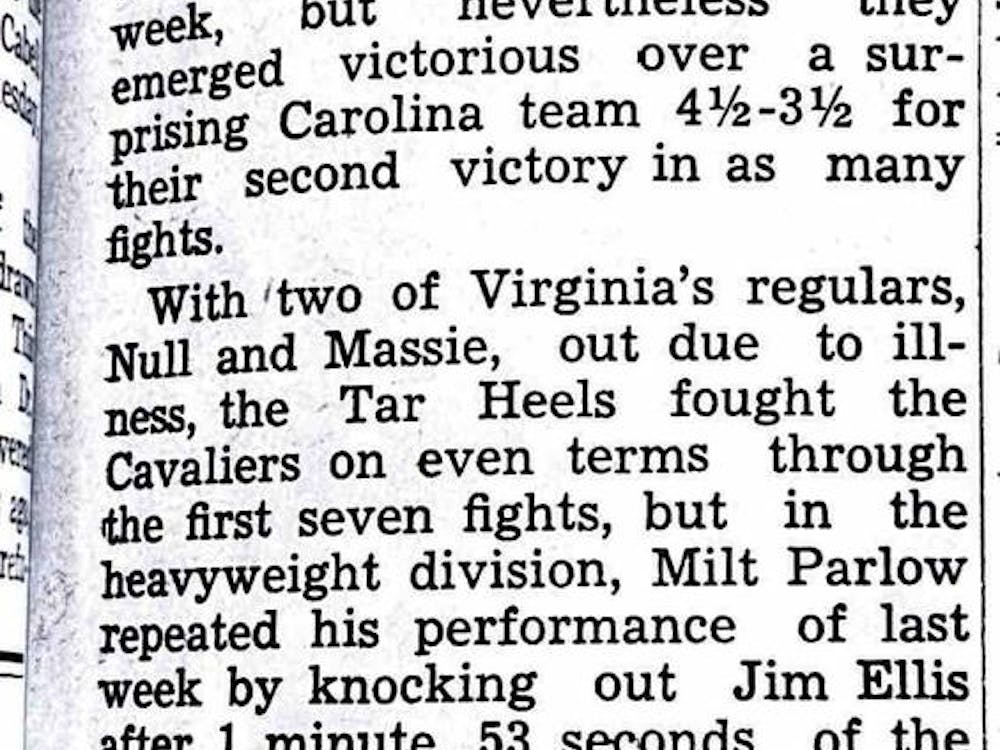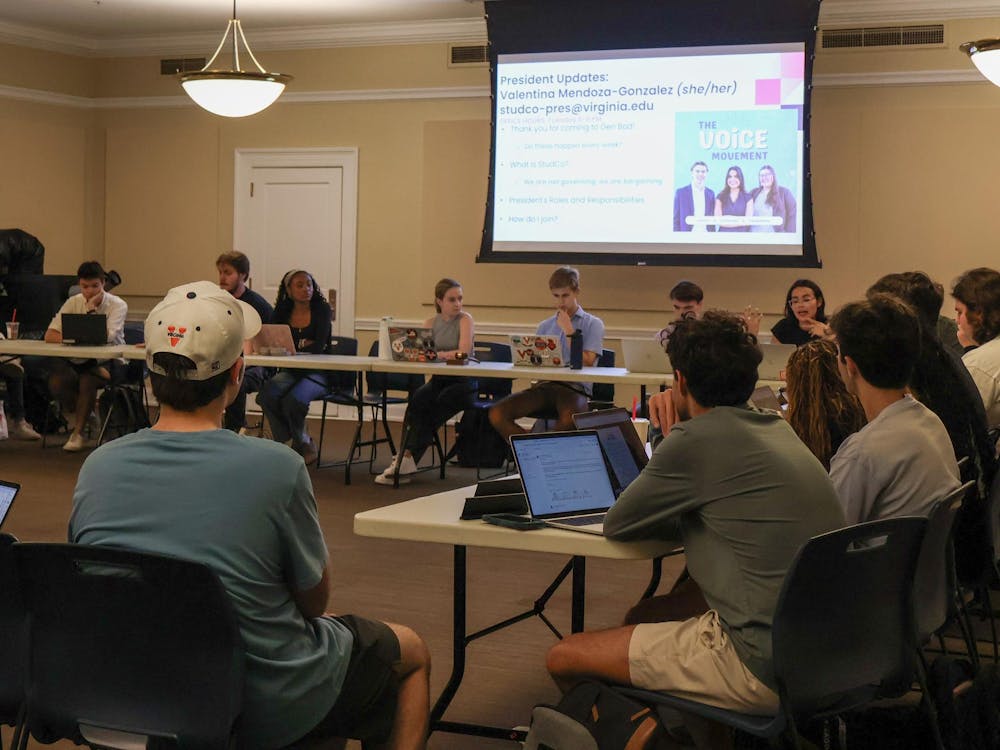The Department of Education's Office for Civil Rights currently is investigating a civil rights complaint filed against the University's undergraduate program in May 2003.
According to a letter from the OCR to University President John T. Casteen, III, a complaint was filed by a white male University applicant's father, alleging that "the University discriminated against his son [...] on the bases of race and sex by denying him admission to the University because he was not a minority or female student."
Both the names of the father and son were censored in the letter; however, The Chronicle of Higher Education reported yesterday that the father is a resident of New York. The article added that the University applicant's father chose "to file the complaint after the university failed to return both his calls and those of U.S. Rep. Carolyn McCarthy, Democrat of New York, whom he had recruited to help press his case."
McCarthy spokesperson Rob Recklaus, said his office placed a call to the University as a "general inquiry" to the case. He said his office did not take sides on the issue.
The OCR did not return repeated phone calls yesterday.
University spokesperson Carol Wood confirmed that the OCR is reviewing the University's undergraduate admission procedures in consultation with the University's Office of General Counsel. She declined to comment on the investigation.
The incoming 2004 first-year class was composed of 9.3 percent African-American students, according to Wood.
Wood defended the University's admissions policies.
"Our process is very holistic, and after the Supreme Court [university admissions] decision it was our belief that we are acting in accordance with the law -- which we always do," she said.
Edward Blum, a senior fellow at the Center for Equal Opportunity, a Northern Virginia based think-tank promoting "colorblind equal opportunity," said the University has "fallen into the cross-hairs a number of times," in regard to diversity issues.
Pointing to the interactive "admissions predictor" on the CEO's Web site, Blum said the racial preferences at the University were given to black and Hispanic applicants were enormous.
Blum said that, according to the predictor, a white, non-legacy, in-state male applicant with a 550 SAT I math and 600 SAT I verbal score who is ranked in the 85th percentile of his high school class is less likely to be offered admission than an African-American or Hispanic applicant with the same attributes. In this scenario, the predictor states that the African-American has a 94.6 percent chance of admission, the Hispanic 43.8 percent chance of admission and the white applicant 13.9 percent chance of admission.
Blum said the online predictor is based on analysis of data from the University's incoming 1999 undergraduate class. While he acknowledged that the information was dated, he said the organization's newer data on University admissions was similar to that of the 1999 numbers.
In response, Wood said the University does not use any formulas in determining admission.
"We look at every individual," she said. "Diversity or ethnicity is only one of many factors which we look at. We look at the whole person and we are trying to create the whole class."
Blum added that his organization's opinion is that the OCR will find the University's admissions practices unconstitutional and demand a change to the predominance of race in admission decisions or face a loss of federal funding.
Race-based admissions came to the national forefront in the summer of 2003 as the U.S. Supreme Court ruled on the constitutionality of the University of Michigan's admissions policy, ruling against point-based systems, but allowing race to be used as a factor in college admissions.
However, "the use of race cannot be so dramatic that race becomes the critical variable in the admissions process," Blum said.





